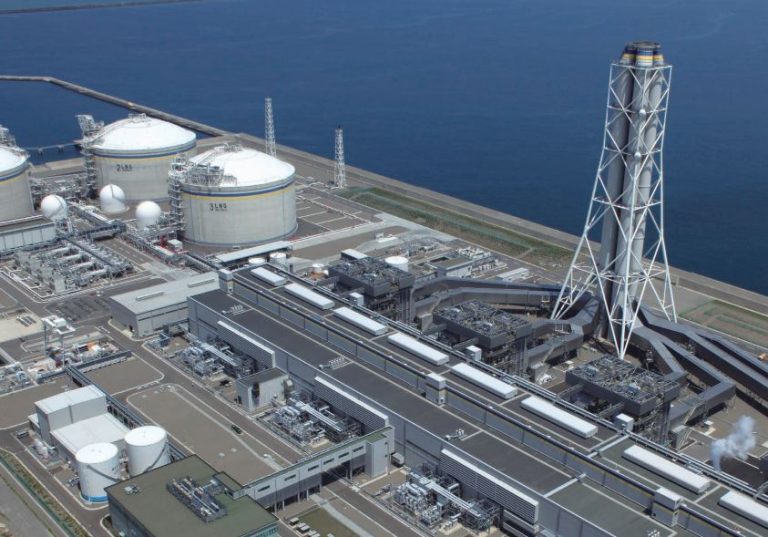Japan’s liquefied natural gas (LNG) imports rose slightly in June, logging a year-on-year increase for the third month in a row, according to the provisional data released by the country’s Ministry of Finance.
The country’s LNG imports rose 0.8 percent year-on-year to 4.57 million tonnes last month, the data shows.
LNG imports dropped compared to 4.87 million tonnes in May, which marked a rise of 5.6 percent year-on-year.
Also, Japan imported 5.28 million tonnes in April, 5.55 million tonnes in March, 6.02 million tonnes in February, and 6.1 million tonnes in January.
During the first half of this year, Japan’s LNG imports decreased by 0.7 percent to 32.4 million tonnes, while coal imports for power generation dropped by 7.1 percent to 45.8 million tonnes.
Japan’s coal imports for power generation dropped in June compared to the last year.
Coal imports were down by 6.9 percent to 6.75 million tonnes, and Japan paid about $1.03 billion for these imports, a drop of 28.6 percent compared to the last year, the data shows.
LNG import bill climbs
The June LNG import bill of about $2.72 billion increased by 8.1 percent compared to the same month last year.
During January-June, Japan paid $19.8 billion for LNG imports, down 9.9 percent year-on-year.
Last week, state-run Japan Oil, Gas and Metals National Corp (JOGMEC) published the monthly spot LNG prices for delivery to Japan in June.
The average price of spot LNG cargoes for delivery to Japan contracted in June 2024 was not disclosed as there were less than two companies that imported spot LNG.
The average price of spot LNG cargoes that were delivered in Japan within the month of June 2024 regardless of the month when the contracts were made (arrival-based price) was $10/MMBtu.
Also, the confirmed figures for May 2024 were not changed from the preliminary figures, with the contract-based price at $9.9/MMBtu and the arrival-based price at $9.5/MMBtu, JOGMEC said.
LNG inventories
METI previously announced that Japan’s LNG inventories for power generation as of June 2 stood at 2.23 million tonnes, up 0.17 million tonnes from the previous week.
Inventories were at 2.10 million tonnes on June 9, 2.14 million tonnes on June 16, 2.07 million tonnes on June 23, 2.10 million tonnes on June 30, 1.99 million tonnes on July 7, and 2.20 million tonnes on July 14, according to METI.
Deliveries to Japan
As per LNG shipments going to Japan in June, deliveries from Asia decreased by 11.1 percent to 817,000 tonnes, the ministry’s data shows.
Middle East LNG shipments rose by 2.2 percent to 451,000 tonnes in June.
Moreover, shipments from Russia rose by 13.6 percent to 552,000 tonnes, while US deliveries decreased by 2.6 percent to 504,000 tonnes in June.
During January-June, deliveries from Asia decreased by 4 percent to 8.21 million tonnes, while deliveries from the Middle East rose 32.1 percent to 3.61 million tonnes.
Shipments from Russia decreased by 3.3 percent to 2.99 million tonnes and US shipments rose by 34.2 percent to 2.84 million tonnes.
Second largest LNG importer
China has overtaken Japan to become the world’s top importer of LNG last year.
China’s LNG imports rose 12.6 percent to about 71.32 million tonnes in the January-December period, and the country imported some 5.17 million tonnes of LNG more than Japan in 2023.
During January-June this year, China imported 38 million tonnes of LNG, a rise of 13.9 percent year-on-year.
Japan imported some 5.6 million tonnes of LNG less than China during the first half of this year.

